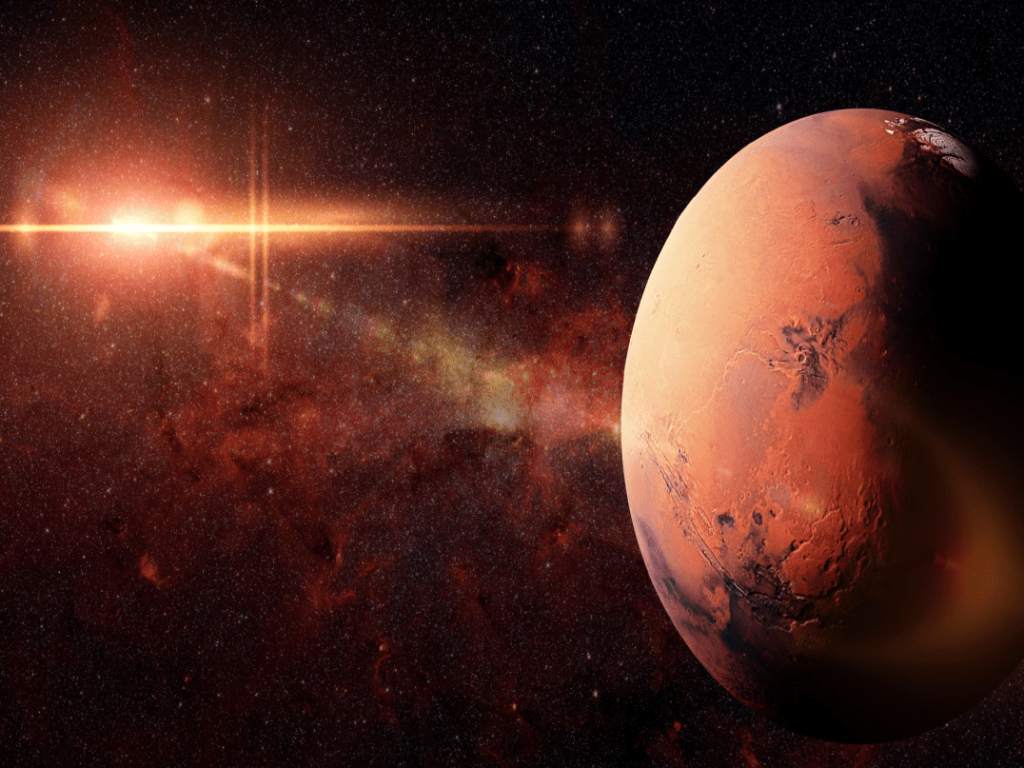In August 2015, NASA (the North American Space Association) announced its plans to colonize Mars before the year 2040. On July 18, 2019, headlines around the world read: “Elon Musk Wants Man on Mars in Four Years”. The recent collaboration between Musk’s SpaceX and NASA had their successful launch of the first crewed orbital spaceflight from American soil in July 2011. It does indeed look like the US space program has been reignited. Thanks to SpaceX’s Mars mission, the first Earthling stepping on the surface of Mars could become a reality in the next 20 years.
All of this talk of the future and life on Mars has led us, as purveyors of languages, to wonder. When Earthlings do finally colonize the red planet, what will be the official Mars language? Will they speak English? Russian? Chinese? Or is there a chance they’ll speak Arabic? After all, it isn’t so farfetched to expect that we could be speaking Arabic on Mars.
Here’s why:
In the 1700s and 1800s, Britain dominated the world; in fact, the saying “The Empire on which the sun never sets” was used to explain the vastness of the British Empire at the time. So, thanks to European expansionism and colonialism being dominated by Britain, English became the world’s dominant language. Even today, with over 400 million native speakers, and around 800 million others who speak it as a second language, English is still seen as the lingua franca of business, politics and tourism.
However, the world may be on the edge of an Arabic renaissance. The worldwide economic and political importance of the Arabic speaking countries of the Middle East continues to grow. In fact, across the Arab world, there are almost as many native Arabic speakers as there are native English speakers around the whole world. But, unfortunately, Arabic falls short of the sheer numbers of people who speak it as a second language. However, that doesn’t mean that you can count Arabic out as a contender for a living language on Mars.
The British Council published a report In 2017 highlighting the languages fundamental to the U.K.’s post-Brexit future. Behind Spanish, Chinese and French, was Arabic at number four. Likewise, Arabic is currently one of just five languages regarded as vital for international relations all around the world.
However, that is not to say that the Middle East is to blame for its own language woes…
Leading Arabic countries have often had to walk that very fine linguistic line. Take the United Arab Emirates, for example. Until 1971, the UAE was a handful of countries known as the Trucial Sheikhdoms. Also, they under the thumb of the British for 150 years through treaties and other agreements. However, after the British decided to end the treaty relationships with the seven Trucial Sheikhdoms, the UAE became independent. Also, they became more influential worldwide. As a result, they created an open-door policy that welcomed the input of foreign skills and technology. By this, they were hoping in the long-term to transfer all of that outside knowledge to the Emirati population. If they had demanded that these foreigners learn Arabic language skills, there is no doubt that demand would have been a hindrance to their success.
What does all of this have to do with Arabs in space and life on Mars?
Well, as a result of the UAE’s success, it’s hard to imagine that, a little less than fifty years ago, a country that once roamed the land on the backs of camels and sailed the Arabian Gulf on small sailing vessels reaches for the stars with its own space agency – United Arab Emirates Space Agency. In 2018, the agency launched the first satellite designed and built by Emiratis into orbit. The next year, in September 2019, Emirati Hazzaa al-Mansoori became the first UAE astronaut to reach the International Space Station.
Perhaps even more exciting, however, is the announcement of the Emirates Mars Mission which plans to launch an unmanned spacecraft named “Hope” to the red planet and is expected to arrive in Mars’ orbit in time for the 50th anniversary of the nation in 2021. By 2117, the UAE hopes to set up the first human colony on the red planet.
Who knows? Maybe ninety-seven years from now, one of those colonists will be the grandchild of a young Bedouin girl who now sits next to a fire, looks up at the night sky full of stars and smiles to herself thinking of the wonderful places she can go.
And off in the far, future distance, we hear a voice bouncing off of the satellites uttering the first Martian words: “لقد بدأنا مع الأمل ، والآن نواصل الأمل للبشرية جمعاء.” / “lqad badana mae al’amal , walan nuasil al’amal lilbashariat jmea’.” / “We started off with hope, and now we continue for the hope of all mankind.” as an Arab is the first to step foot in a Martian home.
In conclusion…
If you liked this article and are thinking about the future, why not include learning Arabic? There’s no need to wait for a future mission to Mars. You can learn to speak Arabic today with the Kaleela Arabic learning app – the best way to learn Arabic! Learn Arabic language skills on your own, at your own pace, whenever and wherever you want. And though there is no Martian Arabic dialect yet, with the Kaleela Arabic learning app, you can learn several other Arabic dialects including Egyptian Arabic, Levantine Arabic and now you can even learn the Syrian dialect. Visit our website and start speaking Arabic today.
Kaleela – Learn Arabic the Right Way!



